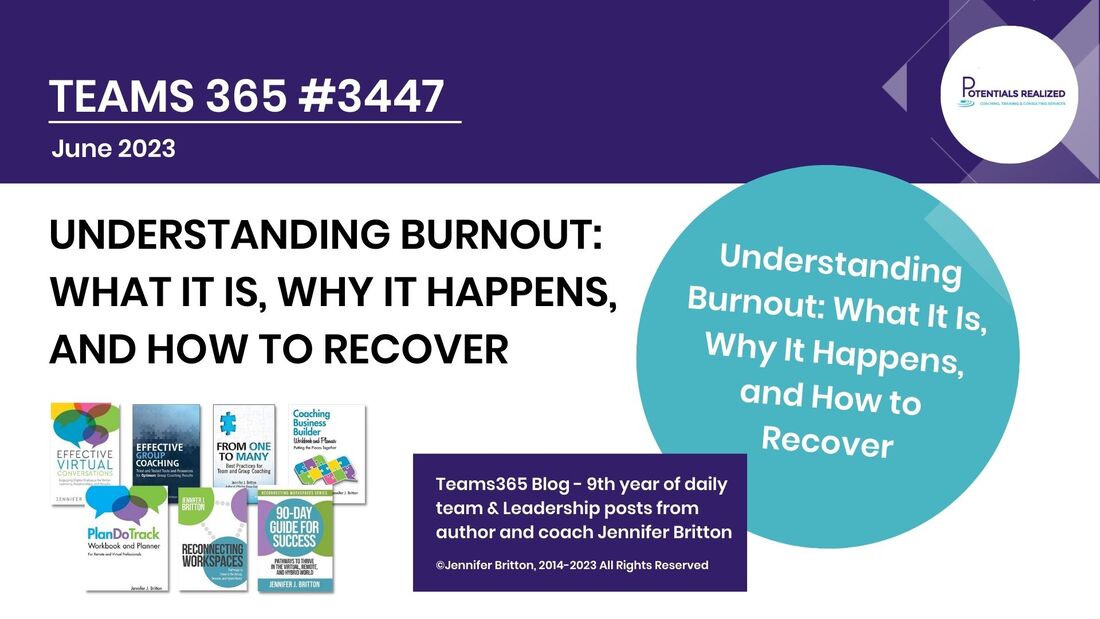What is Burnout? Burnout is not simply feeling tired or stressed; it is an extreme form of exhaustion that occurs when the demands of a job or lifestyle consistently exceed an individual's ability to cope. It often manifests as a prolonged state of emotional and physical depletion, accompanied by a sense of detachment and reduced accomplishment. Symptoms of burnout can include chronic fatigue, increased cynicism or negativity, reduced motivation, and diminished performance.
Why Does Burnout Happen? Several factors contribute to burnout. Prolonged periods of chronic stress, such as heavy workloads, long hours, or unrealistic expectations, can gradually erode an individual's resilience and lead to burnout. Lack of control over work, insufficient support from colleagues or supervisors, and a lack of work-life balance can also contribute to its development.
Additionally, personal factors like perfectionism, high self-expectations, and a tendency to neglect self-care can make individuals more susceptible to burnout.
How to Recover from Burnout: Recovering from burnout requires a holistic approach that addresses physical, emotional, and psychological well-being. Here are some strategies that can help in the recovery process:
- Recognize and Acknowledge Burnout: Start by acknowledging that you are experiencing burnout and understand the underlying causes. Self-awareness is the first step towards recovery.
- Seek Support: Reach out to trusted friends, family, or colleagues who can provide emotional support and understanding. Consider seeking professional help from therapists or counselors who specialize in stress management.
- Prioritize Self-Care: Focus on self-care activities that promote relaxation and rejuvenation. Engage in activities you enjoy, prioritize sleep, maintain a healthy diet, and exercise regularly. Make time for hobbies and activities that bring you joy.
- Set Boundaries: Establish clear boundaries between work and personal life. Learn to say no when necessary, delegate tasks, and avoid overcommitting yourself. Practice effective time management to reduce stress levels.
- Take Breaks: Incorporate regular breaks throughout your day to recharge. Engage in activities that help you disconnect from work, such as meditation, deep breathing exercises, or spending time in nature.
- Adjust Your Workload: If possible, discuss your workload with your supervisor or team members. Explore ways to delegate or redistribute tasks to create a more manageable workload.
- Foster Supportive Relationships: Cultivate positive relationships with colleagues and superiors. Foster open communication and seek opportunities for collaboration and support.
Conclusion: Burnout is a significant concern that affects many individuals today, but it is possible to recover and regain a sense of balance and well-being. By recognizing burnout, seeking support, prioritizing self-care, setting boundaries, taking breaks, adjusting workloads, and fostering supportive relationships, you can embark on a journey towards recovery and resilience. Remember, recovering from burnout is a process that requires patience, self-compassion, and a commitment to prioritize your well-being.
Potentials Realized |Reconnecting Workspaces | Group Coaching Essentials
Team and Leadership Development | Coaching | Retreats
Follow us on Instagram @ReconnectingWorkspaces
Phone: (416)996-8326
Check out my TEDx talk
Looking to bring your workplaces back together, whether you are remote, hybrid, or face-to-face? Pick up a copy of my new book, Reconnecting Workspaces, at Amazon.

 RSS Feed
RSS Feed





